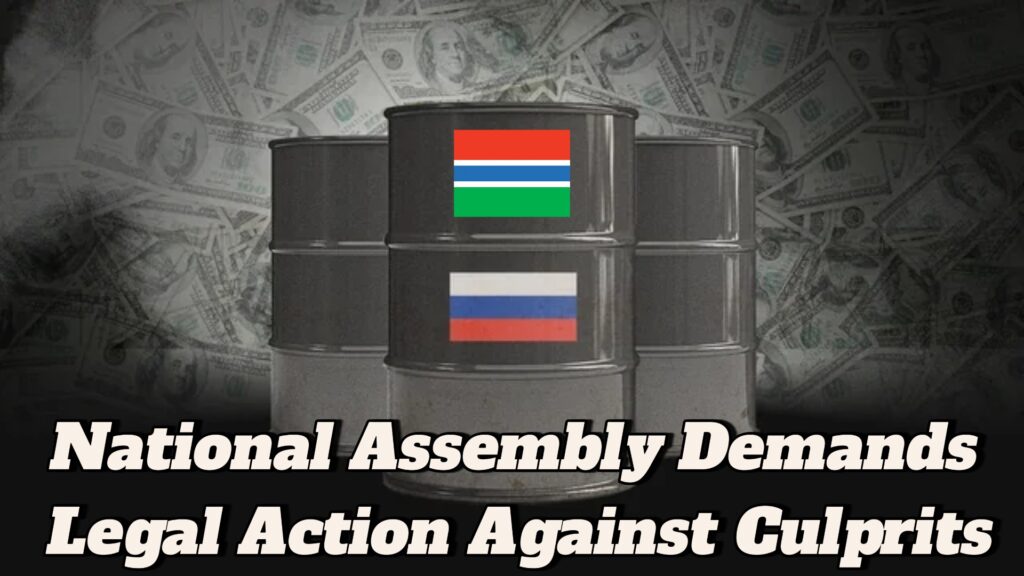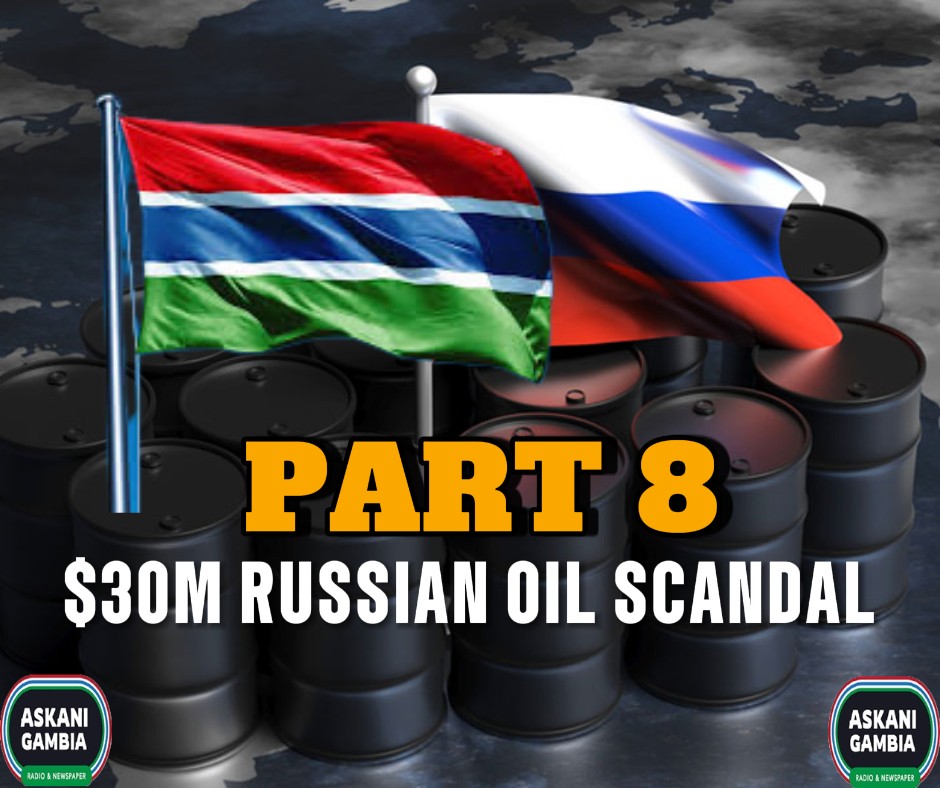
(Fuel Files Series – FPAC & PEC Petroleum Inquiry, 2023–2025)
When the Joint Committee of FPAC & PEC finished questioning witnesses in the Gam Petroleum inquiry, one thing became painfully clear: the scandal wasn’t just about traders and bankers. It was about institutions that were supposed to protect the nation, and didn’t.
Three names repeatedly appeared: PURA, GRA, and the Ministry of Petroleum & Energy (MoPE).
Together they form the spine of The Gambia’s fuel governance system. Yet, between 2021 and 2024, they watched silently while millions of litres of petroleum and millions of dollars in transactions slipped through the cracks.
PURA: The Regulator That Issued, Then Ignored
The Public Utilities Regulatory Authority (PURA) is mandated to license all petroleum operators and monitor their activities, from importation to distribution.
But when Gam Petroleum’s ullage system started showing favouritism and irregular allocations in 2023, PURA hesitated to act.
It wasn’t until September 2023 that PURA formally directed Gam Petroleum to suspend the ullage system, after repeated complaints from OMCs like Oryx Energy and Atlas Energy.
By then, the damage had been done. Apogee FZC had already secured premium access, and shipments had been processed outside the regulator’s watch.
Even worse, the Committee found that PURA did not conduct routine inspection visits to verify actual fuel volumes or meter calibrations at Mandinari, the simplest way to detect discrepancies.
In the words of one Committee member:
“PURA gave the licence but abandoned the monitoring. That is not regulation; that is abdication.”
GRA: The Customs Gate Left Open
The Gambia Revenue Authority (GRA) is supposed to be the tax and customs gatekeeper, ensuring that all petroleum imports and exports are declared through the ASYCUDA system and accompanied by matching bank and customs documentation.
However, when FPAC and PEC asked for records of Apogee’s 36,935 metric tonnes of petroleum, GRA could not produce corresponding entries in its system.
Some transactions appeared only as manual declarations without the standard electronic verification trail.
That meant the state could not confirm whether taxes, excise, and levies were properly applied or paid.
In plain terms, fuel worth $30 million passed through national borders without a clean digital trace.
Worse, GRA’s customs division never reconciled its data with Gam Petroleum’s storage records, something the Committee described as a “fundamental failure of inter-agency coordination”.
MoPE: The Ministry That Knew but Did Nothing
The Ministry of Petroleum & Energy (MoPE) was responsible for overseeing Gam Petroleum and PURA.
The Committee found that MoPE received complaints about ullage favouritism and missing reconciliation reports in mid-2023, but no ministerial action followed.
During hearings, the former Permanent Secretary admitted the Ministry “did not request monthly stock reports” from Gam Petroleum, the same reports that would have exposed the missing volumes.
It was also revealed that the Ministry never exercised the government’s 40% shareholder rights in Gam Petroleum through GNPC, nor demanded dividends or financial statements.
When asked why, one MoPE official replied:
“We believed PURA was handling it.”
A belief that cost the state millions.
The Oversight Black Hole
FPAC & PEC summed it up bluntly:
• PURA licensed but didn’t monitor.
• GRA registered but didn’t reconcile.
• MoPE supervised but didn’t act.
And when the fuel vanished, each pointed fingers at the other.
This “institutional ping-pong,” as one lawmaker called it, was the perfect environment for traders and insiders to operate undisturbed.
What the Government Promised Afterwards
In its 13 August 2025 response, the Government accepted that “systemic coordination failures” had enabled the crisis.
The official recommendations included:
- Mandatory monthly reconciliation between PURA, GRA, and MoPE using a shared data dashboard.
- A petroleum audit unit under the National Audit Office (NAO) to monitor ullage, metering, and forex allocations.
- Board reform at Gam Petroleum to ensure the government’s 40% shareholder rights are exercised through GNPC.
- Revised Petroleum Regulations (2025) to define the legal status of comfort letters, ullage rights, and emergency reserves.
Whether these promises materialise is another story.
The Cost of Sleeping Watchdogs
Every litre of unrecorded fuel is lost revenue.
Every missing reconciliation is a shadow on the national budget.
And every time a regulator stays silent, the poor pay twice: first through rising pump prices and then through budget deficits financed by taxes and loans.
The Petroleum Inquiry exposed more than a fuel scandal. It exposed a governance culture in which oversight is reactive rather than proactive, and agencies defend mandates more than the public interest.
The Moral Bottom Line
The Gam Petroleum saga was not a one-person crime but a system failure.
Institutions built to protect the nation chose convenience over courage.
Until that culture changes, until regulators act before disaster, not after, The Gambia will keep chasing scandals it could have prevented.
Accountability isn’t just about jailing culprits; it’s about rebuilding the walls that should have stopped them in the first place.
By Jallow Modou, Financial Analyst, Washington D.C., USA
Fuel Files Series — Making the Petroleum Inquiry Speak for the People

